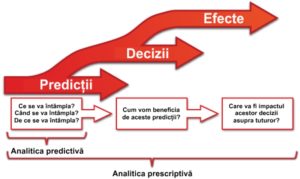 Ontology engineering, along with semantic Web technologies, allow the semantic development and modeling of the operational flow required for blockchain design. The semantic Web, in accordance with W3C, “provides a common framework that allows data to be shared and reused across application, enterprise, and community boundaries” and can be seen as an integrator for various content, applications and information systems. The most widely used blockchain modelling system, by abstract representation, description and definition of structure, processes, information and resources, is the enterprises modelling. Enterprise modelling uses domain ontologies by model representation languages.
Ontology engineering, along with semantic Web technologies, allow the semantic development and modeling of the operational flow required for blockchain design. The semantic Web, in accordance with W3C, “provides a common framework that allows data to be shared and reused across application, enterprise, and community boundaries” and can be seen as an integrator for various content, applications and information systems. The most widely used blockchain modelling system, by abstract representation, description and definition of structure, processes, information and resources, is the enterprises modelling. Enterprise modelling uses domain ontologies by model representation languages.
DOI: 10.13140/RG.2.2.19062.24642
Blockchain Design and Modelling
